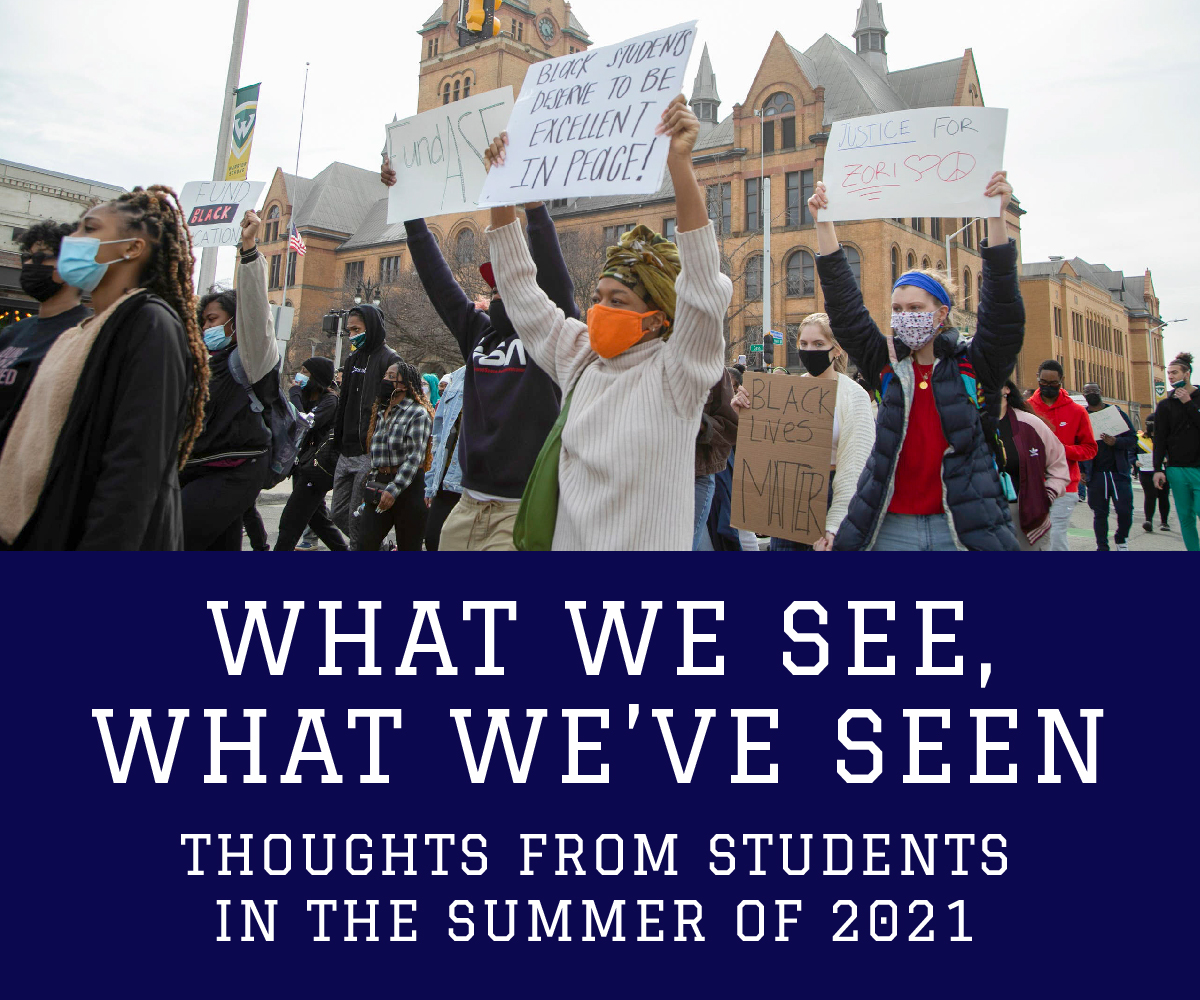
Photo credit: Mandi Wright, Detroit Free Press
by Christina LaPalm
I was a sophomore in college, having what I considered one of the best years of my life when the news of COVID-19 hit. Though I was fortunate enough to evade the actual virus, the pandemic took something important from me. The retreat to quarantine in my childhood home in the middle of my spring semester at Loras College created a distance between myself and the world around me. Even now I struggle with the profoundness of the disconnect it forced upon me. When issues surrounding climate change and racial inequality began to appear in the media, it felt impossible to relate to them or find the drive to look past my own monotonous life and reach out to those communities that were suffering most. Everything just seemed so surreal that I couldn’t make sense of the environment I was living in everyday. News and the media were telling me to stay inside and mask up, while the other half of the content urged me to get out and protest. Meanwhile, I was working at a deli in a grocery store, witnessing people intentionally coughing on others, flying confederate flags off the backs of their trucks in the parking lot, and taking off their masks every time they had to talk to me. As a response to the barrage of different messages, my mind just went numb. I left social media and, as soon as my classes ended, I put all thought of school or future plans out of my mind. Why would planning for my future matter when there was no end of the pandemic in sight? In my mind, it didn’t make sense for me to try to find an internship for that summer, like I originally planned. In fact, it didn’t make sense for me to try that hard in online school because the struggles with wifi and lack of communication lessened the quality of my education ten fold.
Months later, after my junior year had passed in the blink of an eye, I found myself looking at my college career in retrospect. I saw a black hole where COVID-19 stole precious time and learning experiences from me. I went from being a jovial, optimistic sophomore to a college senior filled with trepidation towards her future. As a business major, it was extremely disheartening to see the stock market fall past where it had fallen during the great depression and know that this was the economy that I would be stepping into as a college graduate. Besides that, it disgusted me to see the level of privilege I had as a white, middle class woman to have barely noticed a change in my life when the virus hit, the economy failed, and climate change worsened.
After leaving my bubble of a small, white town in Michigan, I finally started to feel connected again. I talked to people whose parents had lost their jobs, to friends who had the virus, and to people of color who had very personal stakes in the politics of the pandemic. Returning to campus allowed me to feel a connection with the wider world around me. There were numerous campus activities and talks that discussed the struggles that were created or heightened by the pandemic. I do feel hopeful towards my future, though I am struggling to believe that everything is uphill from where we are now. Having lived through the pandemic, I am weary about spontaneous disasters ruining any plans I could make. Despite this, there is something exciting and new about going fully independent that makes me feel happy when I think of life after college. If there is one thing that came from all the conflict that was intensified by COVID-19, it’s the knowledge that I will always have a place in helping organizations that are fighting for social justice. I now realize how many options I have to devote parts of my life to fighting injustice, and, because of this, I am slowly becoming more optimistic about my future ability to stay connected to the world once I am out of college.

